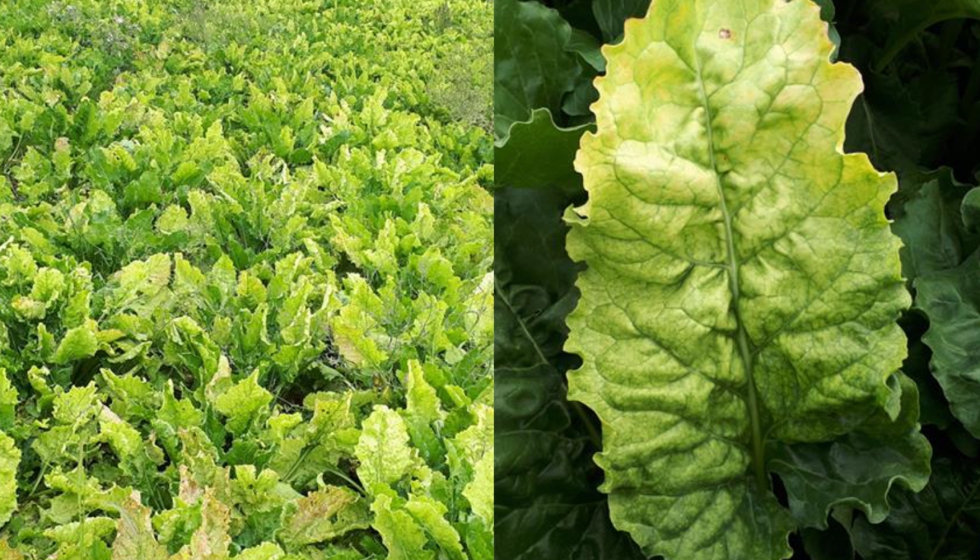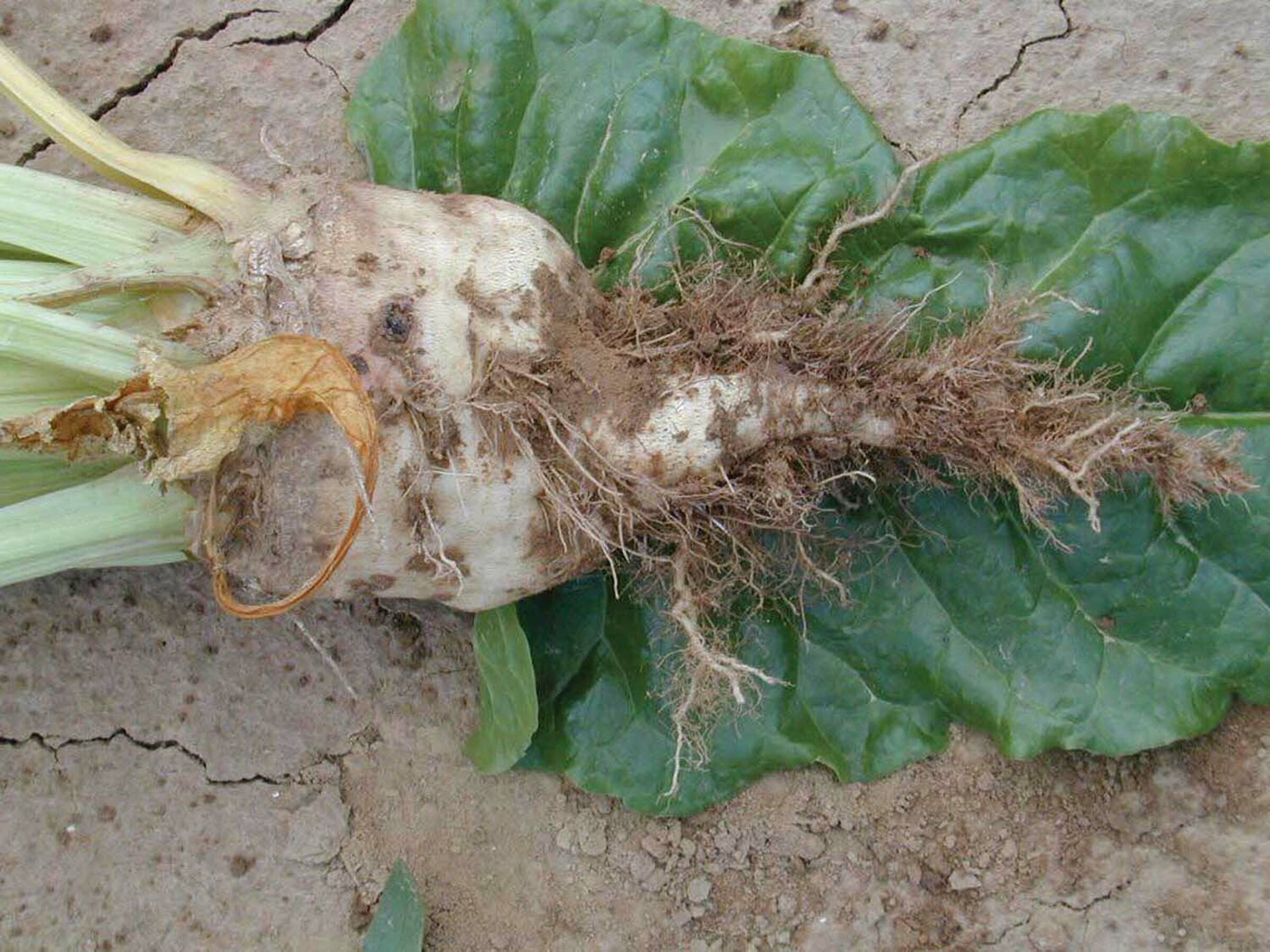
Virus
Rhizomania
Beet Necrotic Yellow Vein Virus (Bnyvv)
Pathogen:
Virus
Type:
Risk to the plant:
CRITICAL



DESCRIPTION
WHO CAUSES IT?
Beet necrotic yellow vein virus (BNYVV) is the causal agent of rhizomania in beet. This virus belongs to the Benyviridae family and is transmitted by the soil fungus Polymyxa betae. BNYVV has a segmented single-stranded RNA genome of positive polarity, allowing efficient replication within host cells. The BNYVV cycle begins when the zoosporangia of the fungus Polymyxa betae release zoospores in the presence of water. These zoospores swim to the roots of the beet, penetrate the root cells and release the virus. Once inside the plant cell, the virus replicates and spreads through the vascular system. Viral particles accumulate in the roots, interfering with normal plant growth and development. The zoospores of the fungus can persist in the soil for several years, making it difficult to control the disease.
SYMPTOMS
Rhizomania is a devastating disease that affects beets, causing a significant decrease in root production and quality. Initial symptoms include yellowing and necrosis of leaf veins, followed by general wilting of the plant. As the infection progresses, the roots show abnormal and excessive growth of secondary roots, known as "beards." This results in deformed and smaller roots, negatively affecting crop yield. Additionally, infected plants may show delayed growth and reduced tolerance to other stress factors.
- Yellowing of the veins of the leaves
- Vein necrosis
- General wilting of the plant
- Abnormal growth of secondary roots
- Deformed and smaller roots
- Delayed growth


TEMPERATURE AND HUMIDITY
15°C - 25°C
60% - 80%

HOW IS IT SPREAD?
Zoospores of the fungus Polymyxa betae, contaminated irrigation water, infested soil, contaminated agricultural tools and machinery, infected seedlings

HOW TO REMOVE IT?
Home remedies
There are no home treatments
Chemical treatments
There are no effective treatments against viruses, the treatments are focused on combating the insect or vector carrying the virus (SEE AVAILABLE TREATMENTS AGAINST INSECTS)
Authorized treatments in organic farming
There are no effective treatments against viruses, the treatments are focused on combating the insect or vector carrying the virus (SEE AVAILABLE TREATMENTS AGAINST INSECTS)
Insect allies
PREDATORY MITES
LADYBUGS
LACEWINGS
PARASITIC WASPS
HOVERFLIES OR PARASITIC FLIES
PREDATORY BUGS
There are no natural allies
Mycodiplosis oidii (predatory mosquito)
EFFECTIVE PRODUCTS TO ELIMINATE THIS PEST
Sponsored link
Sponsored link
Sponsored link
Sponsored link
Sponsored link
Sponsored link
Effective against all types of fungi
- Use beet varieties resistant to rhizomania, which have been developed to tolerate or resist BNYVV infection.
- Implement crop rotations with non-host species of the fungus Polymyxa betae to reduce the inoculum load in the soil.
- Maintain adequate irrigation management to avoid conditions of high humidity in the soil, since this favors the dissemination of the fungus's zoospores.
- Improve soil drainage to reduce water accumulation and prevent the spread of the pathogen.
- Disinfect agricultural equipment and machinery to prevent the spread of the fungus and virus between fields.
- Apply specific fungicides to infested soils to control the population of the vector fungus.
- Regularly monitor fields for early detection of symptoms and perform diagnostic tests to confirm the presence of the virus.
- Eliminate and destroy infected plants to reduce the source of inoculum.
























